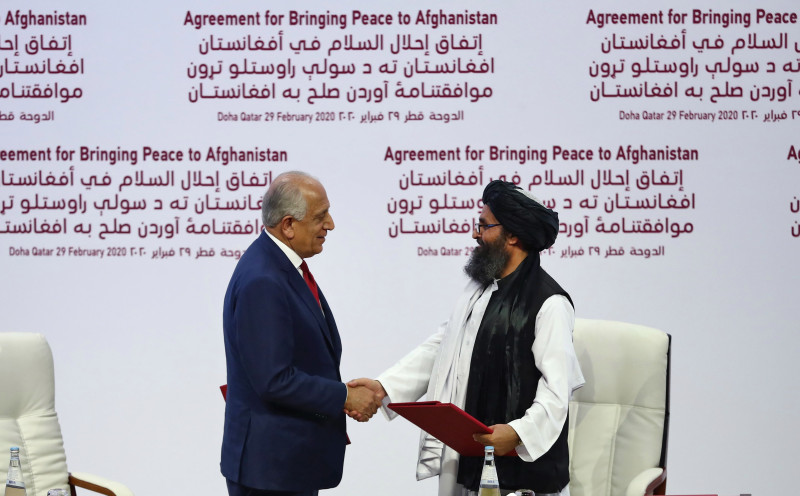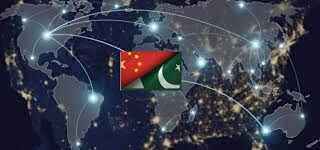
By Dr. Hussain Yasa
Preface
So far, In Doha Intra-Afghan Talks, began on September 12, 2020, the deadlock continues and both parties could not yet finalize the procedural rules and agendas of the talks. Still the crucial issues like the probable future contour of the polity, governance, Shariah and civic values are on pending as the real bones of contention.
On the other hand, the recent wave of high levels of widespread violence has also negatively impacted the overall process.
The fact remains that the Taliban have so far confined themselves only to vague terminologies like Islamic System, Islamic Justice or Islamic Shariah without having a clear vision about the future polity.
In negotiations, the Taliban have avoided laying out their preferred system of Islamic government. However, previous Taliban stances and other historic and contemporary cases of Islamic government provide clues as to what model the Taliban are likely to push for. The role of religion can’t be ignored in Islamic countries such as Afghanistan but non-elected powerful institutions of “Ulema” can not run a country.
Pakistan, Paying the Price for Nothing
But the question remains unanswered: why do the warring parties in Afghanistan, in particular Taliban, do not prefer Pakistani political system?
Pakistan has been under enormous pressure from various sides for having sympathies with the Taliban and being a safe shelter for its leadership. While on the other hand, Pakistan is paying the biggest price for being the neighbor of this troubled country.
No one is buying the outdated and decades old theories anymore that Pakistan wants to annex Afghanistan into its geographical map or extending its strategic depth in Afghanistan or wants to make a confederation with it. In the presence of strong international institutions, these types of approaches seem to be nothing more than that of a political rhetoric or operation level tactics.
On the other hand, the security concerns of Pakistan that Afghanistan should not be used as a launching pad against it, has always been legitimate and is already acknowledged in the bilateral agreement between the Taliban and the US, signed on February 29, 2020 in Doha, Qatar.
The role of Pakistan as the main facilitator for the Doha Talks has also been praised by the international community. Last but not the least, still Afghanistan has millions of refugees in Pakistan and the cultural and religious bonds between the two countries is proven to be indestructible.
Why not Pakistan be a Role Model in the Polity?
Instead of creating a hostile environment with the immediate neighbour, the warring factions in Afghanistan should get the best advantage of the potentials of Pakistan in the areas of social life, in particular the nature of the polity.
Both, the Kabul Administration and the Taliban recognize the fact that Afghanistan is the land of many different ethnic, lingual and cultural groups and the followers of the various “Islamic Schools of Thoughts.” It is the same as Pakistan. But why would the Taliban look at Saudi Arabia and Iran as the probable preferable models of polity and why the Kabul Administration would stick to the Nation State Theory without having a well-defined nation?
Both modalities are not suitable for Afghanistan and might further widen the social cleavage of already fragile Afghan social fabric. If both warring sides truly want to build a country with sustainable peace and stability, then they should look to its immediate neighbor Pakistan.
The Prominent features of polity in Pakistan
- Officially it is Islamic Republic of Pakistan with parliamentary-federal system, one of the best for the heterogeneous societies.
- Islam is the national ID and all other communities are recognized institutionally by the constitution on sub-national levels. The Pakistani constitution guarantees the minorities to freely profess and practice their religions and develop their cultures.
- With more than 216 million population, Pakistan is the home of tens of different diverse communities; from a tiny community of “Hazara” in Balochistan up to the largest ethnic group of “Panjabis” are well accommodated in the system and the power structure.
- There are four provinces with their own semi-autonomous governments as well as the local governments up to the levels of districts and cities. The mainstream political parties have substantially agreed to create two more provinces of Saraikistan in Southern Punjab and Gilgit-Baltistan in the North.
- The National Assembly of Pakistan is bicameral and consists of the Senate and lower house. The Senate has 104 members with equal numbers from all federal units and are elected by each province through Proportional Representation System while the members of lower house and provincial Assemblies are elected on the basis of one of the modern electoral systems “First Past the Post (FPTP)”. The single member constituencies are based on population. Women and the religious minorities have specific quota in all assemblies.
Role of the Religion
- The legislation repugnant to the Islamic Injunctions is forbidden. The Hudood Law (Ordinance) is the part of the enacted constitution. Pakistani President, Prime Minister and the cabinet members, before taking the office are sworn in to preserve the Islamic Ideology.
- There is another important institution “the Council of Islamic Ideology” that advises the legislature whether or not a certain law is repugnant to Islam, namely to the Holy Qur’an and Sunna.
- The Federal Shariat Court (FSC) of Pakistan with extensive power, determine validity of any law or custom having the force of law on the yardstick of “injunctions of Islam”.
- Pakistani religious parties are part of main stream politics and take active part in parliamentary politics. With the fluctuating numbers, they have been playing an important part in all parliamentary activities.
- Creation of Pakistan is based on Two-Nation Theory and based on Islamic Ideology. Islam is the state religion but the constitution doesnot divide Muslims into various sects. The followers of all Islamic School of thoughts as well as the non-Muslims are recognized as equal citizens and free to practice their faiths. The non-Muslims have special quotas in the parliament and civil services.
- The official name of Pakistani parliament is “Majlis-e-Shoora” with a purely Islamic background.
Sustainable and Powerful Institutions
Various institutions like army, judiciary and parliament as well as media with powerful voices are the important aspects of the Pakistani polity. In addition to that, its civil society has been playing a vibrant role in the country.
Thousands of Afghan students are busy with quality education services in Pakistan for free and thousands go for medical treatments on a weekly basis. In both sectors, Pakistan is performing well.
The largest ethnic group “Panjabis” are one of the tolerant communities without hegemonic ambition for political power. Most of the rulers have been from the smaller provinces like Zulfiqar Ali Bhutto, Benazir Bhutto and Mohammad Khan Jonejo from Sindh, Zafarullah Khan Jamali from Baluchistan and Syed Yousaf Raza Gillani from the Saraiki belt of Punjab. Nawaz Sharif was the only Pakistani prime minister from mainland Punjab but he also has Kashmiri background. The current Pakistani Prime Minister, Imran Khan is ethnic Pashtun. As well these smaller communities have served not only as the president of Pakistan but also as the power commander of the Pakistani Army.
Even from the tiny communities of Hazara (General Mohammad Musa Khan) and Qizilbash (General Yahya Khan) also served as the commander-in-chief of the Pakistani Army.
Today, Pakistan is the sixth nuclear power of the world with nearly a million armed forces.
There is no prohibition for anyone from any Islamic sect to serve the highest civilian or military posts while in Afghanistan for certain posts from the presidency up the key ministries ethnicity and religious sect plays a determining role.
Why Hostile Relations?
It has been beyond understanding that why only the fanatic religious parties or private religious institutions such as “Madrasha Haqqania” would be the ideal for Taliban? They enjoy to move across the borders but do not recognize Pakistani political system as the role model. The conservativeKabul governments also instead of collaboration on vital issues, have been stuck only to outdated “Durand Line” issue and unhealthy blame game with Pakistan.
As a sovereign country, Afghan government has the right to have relations with the nations of its choice but hostility with immediate neighbors would tear apart the already war torn country. Instead of being involved in the hostile game of the region, Afghanistan should learn from the political experiences of its neighbors, in particular, Pakistan. The way forward is to create an environment beneficial for both neighbors with a new geopolitical and economic approach.
Conclusion
- The Nation-state theory has already proven to be dysfunctional in Afghanistan. It has widened the gap and created enormous distrust among the various sections of Afghan society.
- Both the Taliban and the Afghan government should follow the Pakistani polity as ideal for its heterogeneous society.
- Religion has nothing to do with types of polity and governance, rather it outlines the principles of good governance, social justice, harmony and brotherhood based on equality.
- For Taliban and Afghan government, the priority should be to keep Afghanistan united and recognize the diversity institutionally which is only possible in a Pakistan-like federal-parliamentary form of system with decentralization of power up to the local government level.
DISCLAIMER: The views expressed are personal opinion of the author. DM has no responsibility whatsoever.









